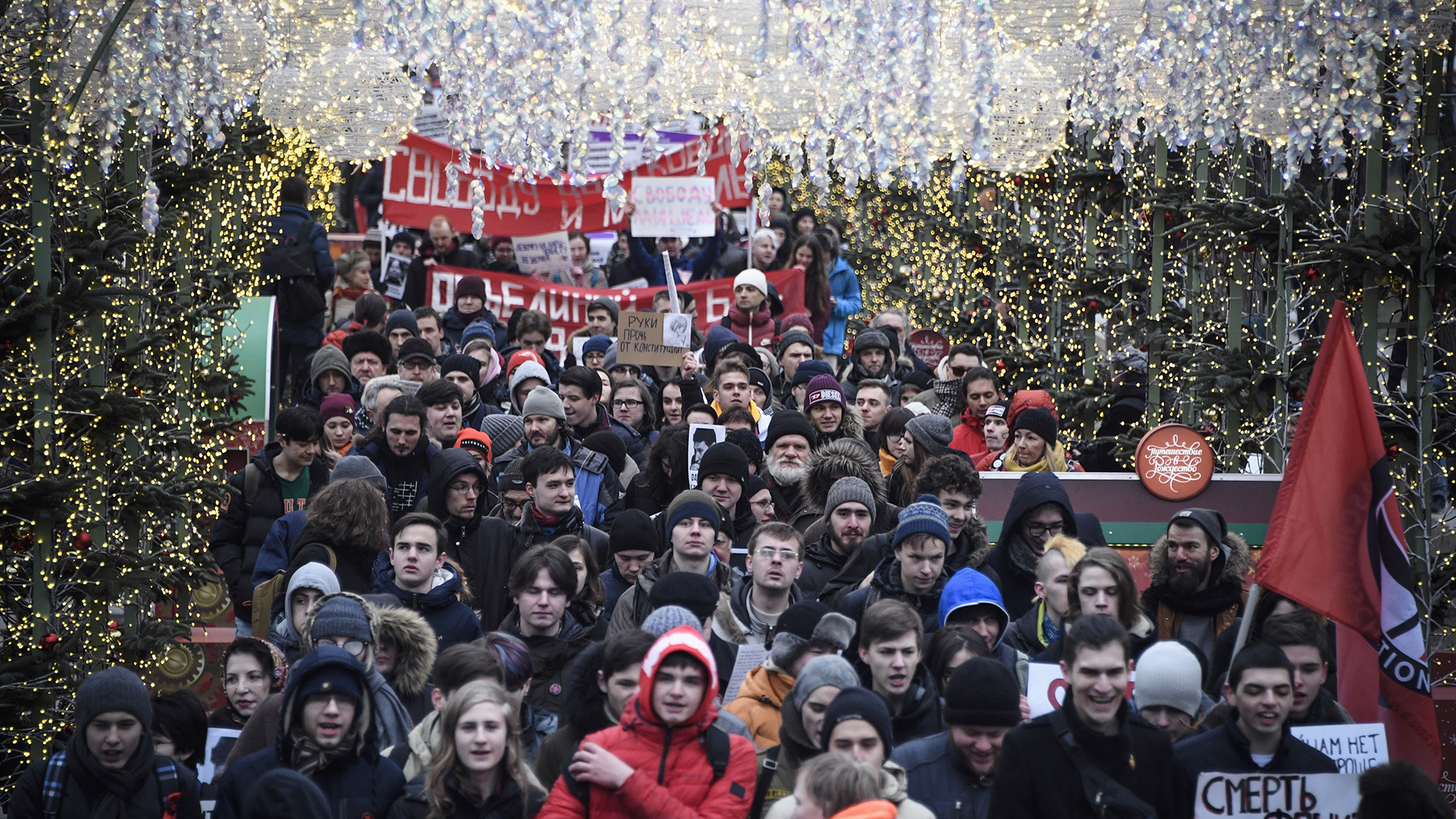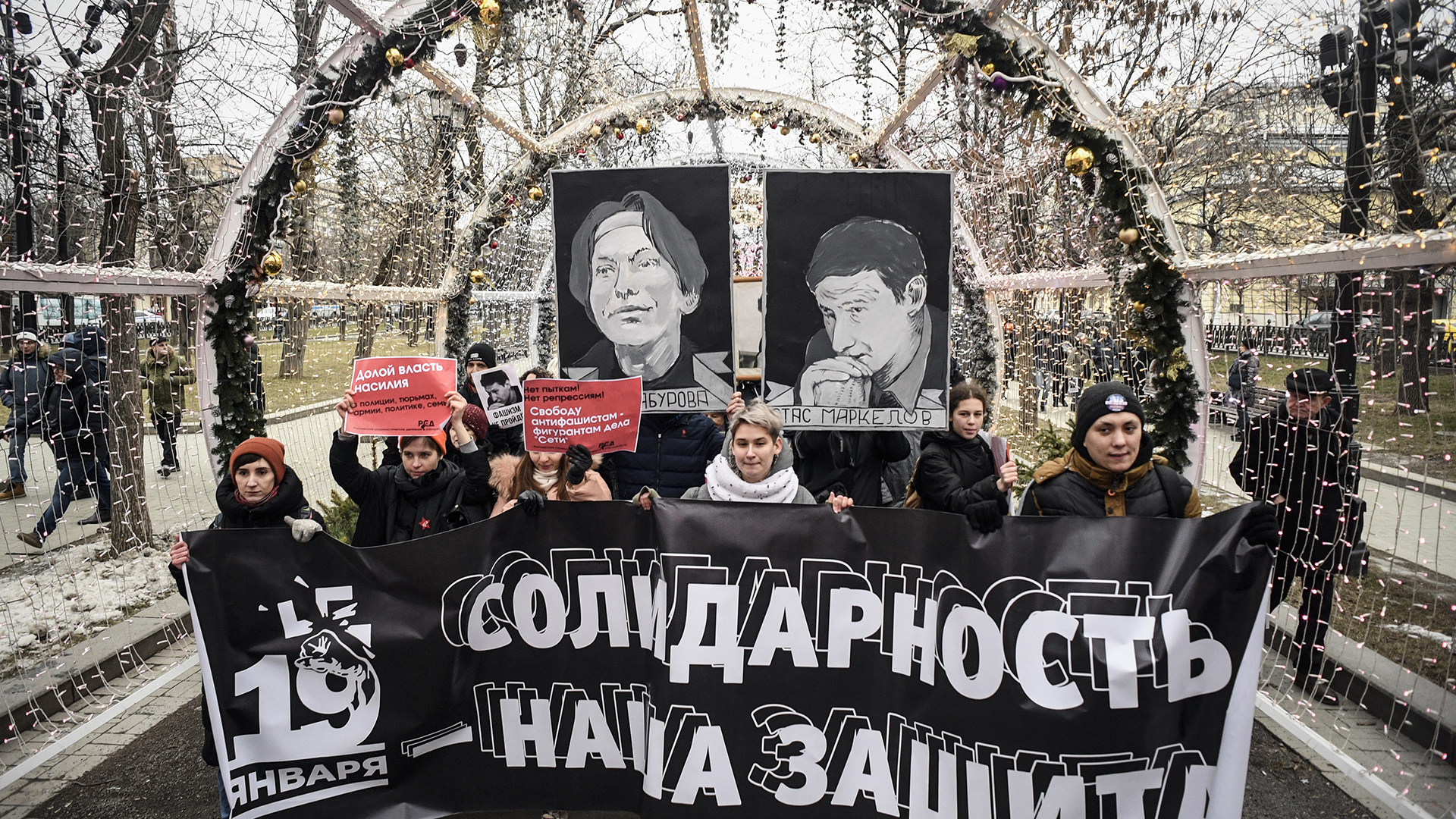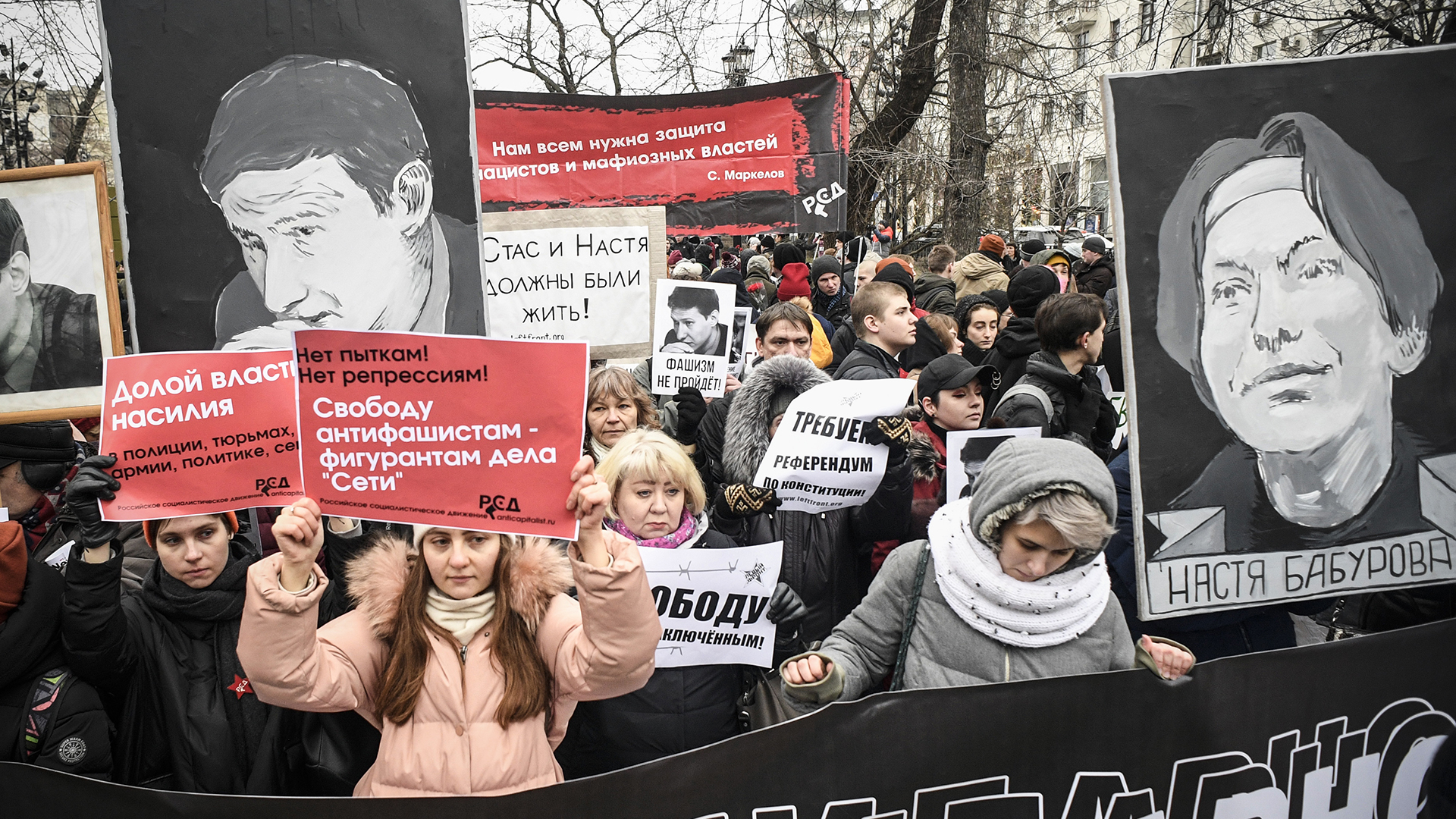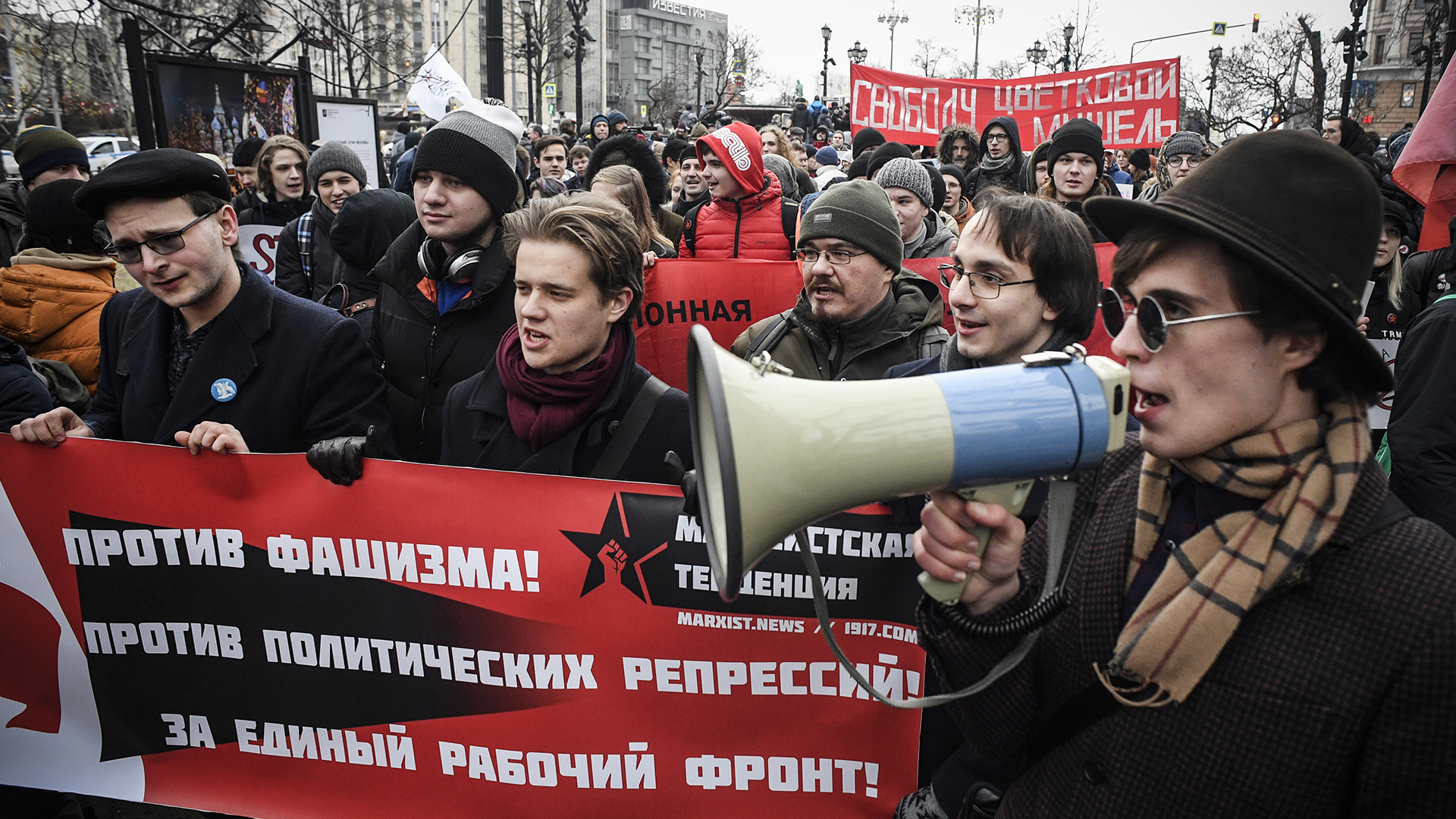
Russian opposition protestors attend an action in central Moscow on January 19, 2020. /AFP Photo
Russian opposition protestors attend an action in central Moscow on January 19, 2020. /AFP Photo

Russian opposition protestors march in central Moscow on January 19, 2020, carrying portraits of lawyer Stanislav Markelov and journalist Anastasia Baburova. /AFP Photo
Russian opposition protestors march in central Moscow on January 19, 2020, carrying portraits of lawyer Stanislav Markelov and journalist Anastasia Baburova. /AFP Photo

Russian opposition protestors march in central Moscow on January 19, 2020, carrying portraits of lawyer Stanislav Markelov and journalist Anastasia Baburova. /AFP Photo
Russian opposition protestors march in central Moscow on January 19, 2020, carrying portraits of lawyer Stanislav Markelov and journalist Anastasia Baburova. /AFP Photo

Russian opposition protestors attend an action in central Moscow on January 19, 2020. /AFP Photo
Russian opposition protestors attend an action in central Moscow on January 19, 2020. /AFP Photo

Russian policemen detain a protestor in centaral Moscow on January 19, 2020. /AFP Photo
Russian policemen detain a protestor in centaral Moscow on January 19, 2020. /AFP Photo
According to the White Counter group, which monitors political protests, more than 1,400 people marched in central Moscow on Sunday after President Vladimir Putin proposed re-drafting the constitution, unleashing political upheaval.
Protesters - mostly young anti-fascist activists - chanted "Revolution" and "No to dictatorship."
The annual sanctioned march was called to commemorate the memory of lawyer Stanislav Markelov and journalist Anastasia Baburova who were gunned down in Moscow by ultra-nationalists in 2009.
A number of independent local deputies joined the march, carrying copies of the constitution and chanted "Putin leave!”
About ten people including a protester who carried a placard urging Putin to quit power were detained by police.
The march took place after Putin stunned the nation last week by proposing sweeping amendments to the constitution, the first major changes to the country's basic law since it was adopted under former Russian leader Boris Yeltsin in 1993.